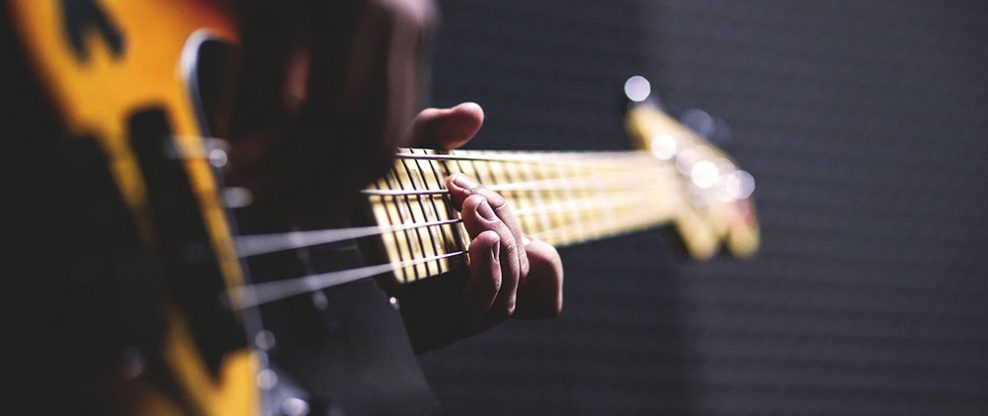(Hypebot) — Earlier this week the UK Chancellor of the Exchequer Rishi Sunak suggested that creatives such as musicians who have seen income dry up during COVID-19 should consider retraining for the new ‘opportunities’ the lockdown economy is generating.
The principle makes sense from an economic perspective, but it is just that – an economist’s solution to a cultural problem. A guitarist becoming an Amazon van driver or a Just Eat courier will certainly have the desired economic output (i.e. more economic productivity), but the cultural damage is potentially irreparable. Perhaps more importantly, however, it is throwing in the towel after the first round of the fight.
A quick lesson from history
Culture is one of the most important outputs of society and the more developed a society is, the more it normally invests in that culture. A brief overview of history illustrates the point. The Roman Empire, one of the first great civilizations, was focused on warfare and expansion. It spawned some famous philosophers and orators, as well as great art (sculpture and mosaics especially). Yet warfare was the defining trait of the empire, and so the majority of the great figures we remember are the military generals and emperors.
Fast forward to the Middle Ages in the same Italian peninsula and we had the Renaissance, ironically rediscovering the lost art techniques of the ancients. Although Italy in this period was dominated by warfare, and although there are no shortage of generals and petty princes to fill the history books, it is the art and culture that the period is best known for. Artists like Leonardo da Vinci, Michelangelo and Raphael are the great names of this era. There was no structured art marketplace, however; instead, rich benefactors (bankers, princes, generals) patronized them, subsidizing their art. They did so often in the hope of immortalizing their own names, but instead immortalized the artists. Art does not always pay for itself. Sometimes it needs a helping hand.
Small venues create national economic output; virtual ones may not
Now to be clear, I am not advocating that music should become state subsidized. Nor am I comparing the musical output of a bedroom musician with that of a renaissance master (though Kanye does think that he is ‘unquestionably’ an even better artist than even those Italian greats). The lesson to learn from history here is that in tough times, society benefits from supporting culture.
If small music venues continue to fall like flies ,smaller and emerging artists will be bereft of real-world places to perform and to build audiences. The music market will stagnate with new talent having one more hurdle to success put in its way. Live streaming will pick up some of the slack and may even become a valuable alternative for many artists. For the UK government, however, that will mean swapping the economic output of UK venues for that of predominately American technology platforms. That economic output will leave the UK economy – and at a time of trade uncertainty leading up to Brexit, to lose music, arguably the UK’s most culturally renowned global export over the last century, would be a weighty hit.
Artists need to experiment and innovate now more than ever before
This is bigger than national economic protectionism, and it is certainly bigger than the UK. To use that horrible management consultant phrase: change is difficult. We are cursed and blessed to live in interesting times. Technology has changed the recorded music business beyond recognition; now, because of the pandemic, technology is going to accelerate change in the live business as well. This process may be difficult, and it may be long, but it will result in a differently shaped music business in the mid-term future.
“new models take time to become viable”
Artists have an opportunity, even a responsibility, to innovate and experiment. Before COVID-19, live, merch, recording and publishing were – in varying degrees – the majority of the revenue mix for most artists. Live is unlikely to return to anything resembling normality until 2022. From this moment on, then, artists need to experiment with new models, new ways to engage with audiences and to generate income – whether that be writing for other artists on Soundbetter, making sound packs on Splice or Landr or selling digital collectibles via Fanaply. Artist income is more varied and sophisticated now than it was 10 years ago. The reality is that this trend is going to accentuate both in the lockdown economy and post-pandemic.
However, new models take time to become viable. In this interim stage, if there is a role for state support, it is to provide artists and songwriters with the financial support and technical and business training to enable them to be winners in this new creative paradigm. Rishi Sunak was wrong to suggest that artists should retrain out of music. But he was right that they should retrain. They should retrain from being artists of the 2010s to artists of the 2020s, and that is where he should be providing support.





























